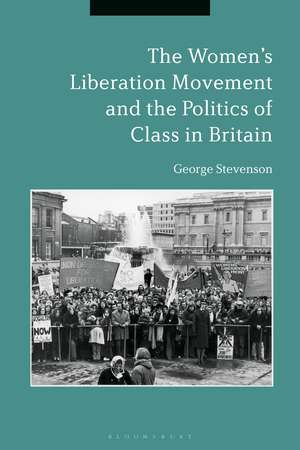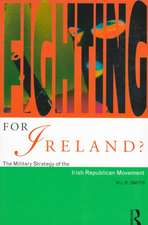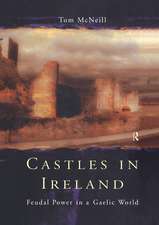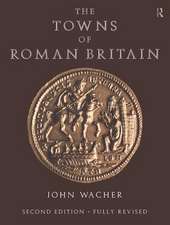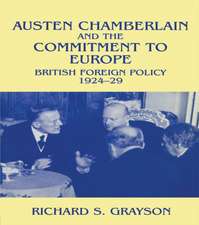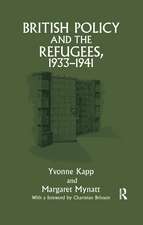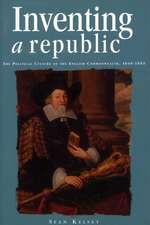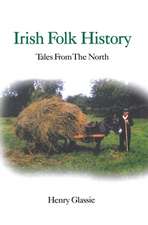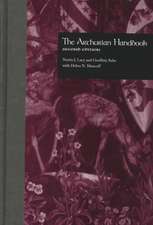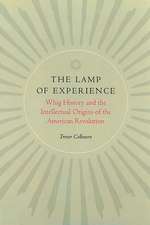The Women's Liberation Movement and the Politics of Class in Britain
Autor Dr. George Stevensonen Limba Engleză Paperback – 19 aug 2020
| Toate formatele și edițiile | Preț | Express |
|---|---|---|
| Paperback (1) | 225.31 lei 43-57 zile | |
| Bloomsbury Publishing – 19 aug 2020 | 225.31 lei 43-57 zile | |
| Hardback (1) | 657.29 lei 43-57 zile | |
| Bloomsbury Publishing – 20 feb 2019 | 657.29 lei 43-57 zile |
Preț: 225.31 lei
Preț vechi: 289.16 lei
-22% Nou
Puncte Express: 338
Preț estimativ în valută:
43.11€ • 45.13$ • 35.88£
43.11€ • 45.13$ • 35.88£
Carte tipărită la comandă
Livrare economică 31 martie-14 aprilie
Preluare comenzi: 021 569.72.76
Specificații
ISBN-13: 9781350178281
ISBN-10: 1350178284
Pagini: 288
Ilustrații: 3 bw illus
Dimensiuni: 156 x 234 x 19 mm
Greutate: 0.4 kg
Editura: Bloomsbury Publishing
Colecția Bloomsbury Academic
Locul publicării:London, United Kingdom
ISBN-10: 1350178284
Pagini: 288
Ilustrații: 3 bw illus
Dimensiuni: 156 x 234 x 19 mm
Greutate: 0.4 kg
Editura: Bloomsbury Publishing
Colecția Bloomsbury Academic
Locul publicării:London, United Kingdom
Caracteristici
Provides regional examples of women's liberation from a previously neglected feminist cluster in North East England and establishes fruitful comparison between these and other British case studies
Notă biografică
George Stevenson is the Social and Cultural Studies Module Convenor at INTO Newcastle University, UK. He completed a PhD in history at Durham University and was a postdoctoral research fellow at the University of Southampton, UK. He has published articles in the Labour History Review, Women's History Review and History Workshop Online.
Cuprins
List of IllustrationsList of TablesIntroductionPart I - Production and Reproduction: The Class Politics of Feminism1. The Women's Liberation Movement and Class Politics2. Women Workers in the 1970s: Feminists or Part of the Class Struggle?3. Class Struggle in the Reproductive SpherePart II - Individuals in Movement: The Personal, the Political and the Universal4. Struggling with 'Sisterhood': Class within the WLM5. Class, Autobiography and Collective Memory in the WLMConclusionBibliographyIndex
Recenzii
Hearing [working-class activists] in their own words, express their experiences is fascinating, and making a record of this collective memory is part of what give Stevenson's book its value ... A helpful chronicle of the arguments, ideologies and activisms of this time.
[The Women's Liberation Movement and the Politics of Class in Britain] shows how essential it is to grasp the relationship of class and oppression.
This highly readable book constitutes a major piece of original historical research that sheds much light on the under-researched topic of the Women's Liberation Movement and class, and will prove invaluable to both scholars and students of feminism alike.
This is an important book and distinctive contribution to the study of feminist politics, political history and the history of the 1970s in Britain. This is a vibrant and evocative study of the strains of identity and intersectionality within left-progressive politics. More than that its interrogation of the definitions and political applications of the categories of class and gender will be of vital use and interest to scholars across the social sciences.
As so often, the full complexities of a seemingly familiar history emerge from a careful and imaginative dissection of its micro-political dynamics. In this bravely argumentative account of the politics of Women's Liberation in 1970s Britain, George Stevenson delivers exactly such a contribution.
[The Women's Liberation Movement and the Politics of Class in Britain] shows how essential it is to grasp the relationship of class and oppression.
This highly readable book constitutes a major piece of original historical research that sheds much light on the under-researched topic of the Women's Liberation Movement and class, and will prove invaluable to both scholars and students of feminism alike.
This is an important book and distinctive contribution to the study of feminist politics, political history and the history of the 1970s in Britain. This is a vibrant and evocative study of the strains of identity and intersectionality within left-progressive politics. More than that its interrogation of the definitions and political applications of the categories of class and gender will be of vital use and interest to scholars across the social sciences.
As so often, the full complexities of a seemingly familiar history emerge from a careful and imaginative dissection of its micro-political dynamics. In this bravely argumentative account of the politics of Women's Liberation in 1970s Britain, George Stevenson delivers exactly such a contribution.
